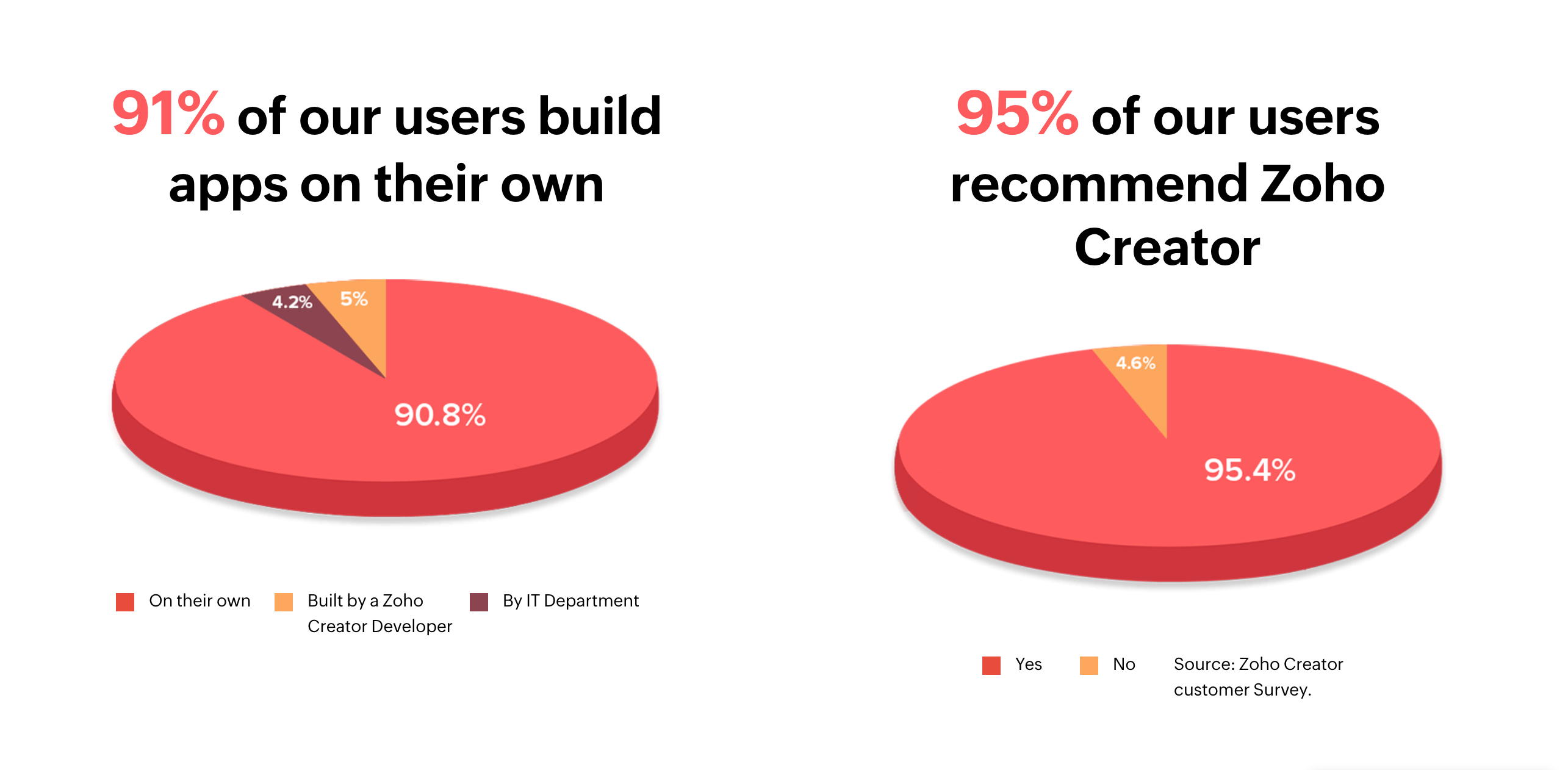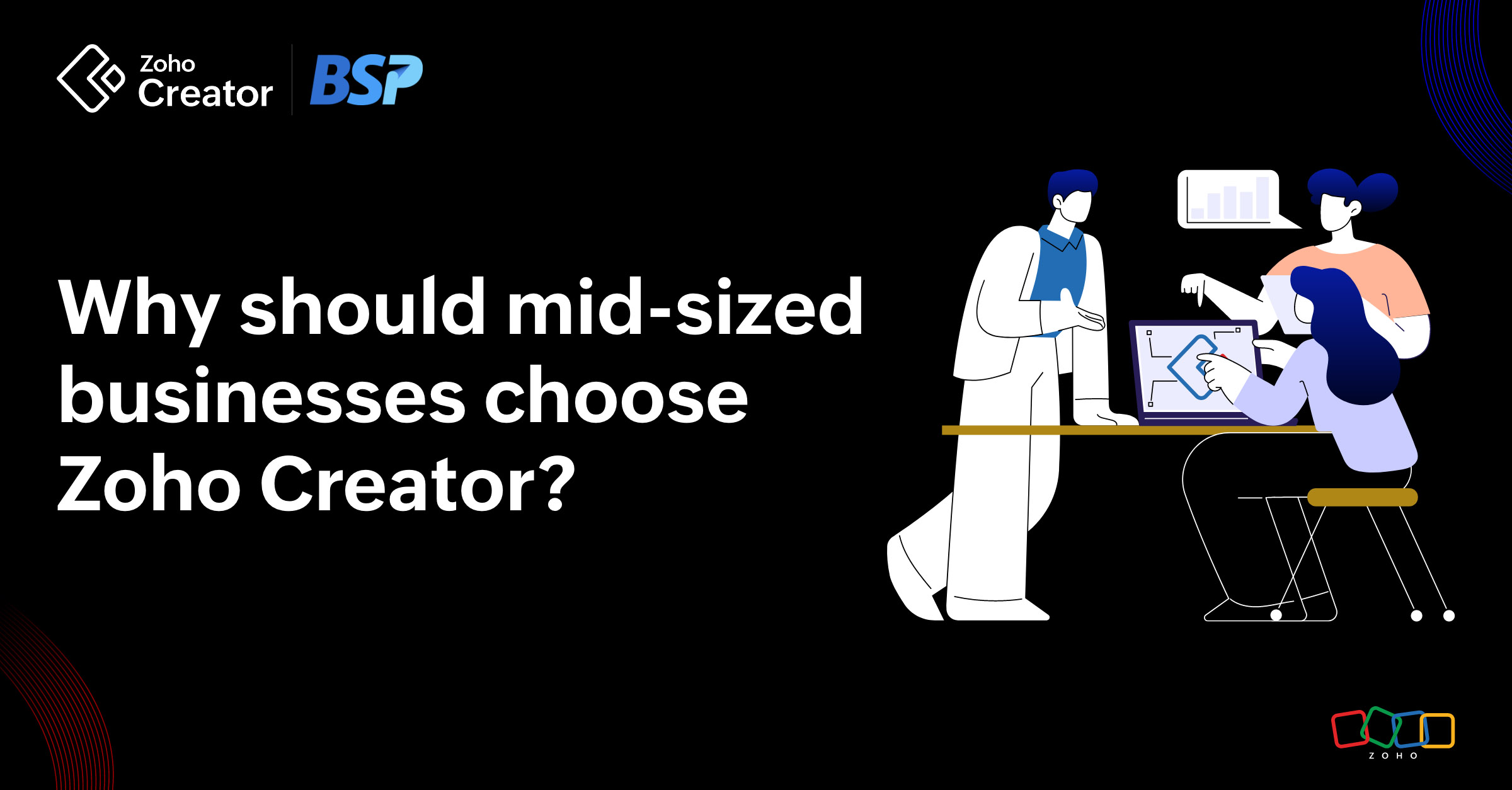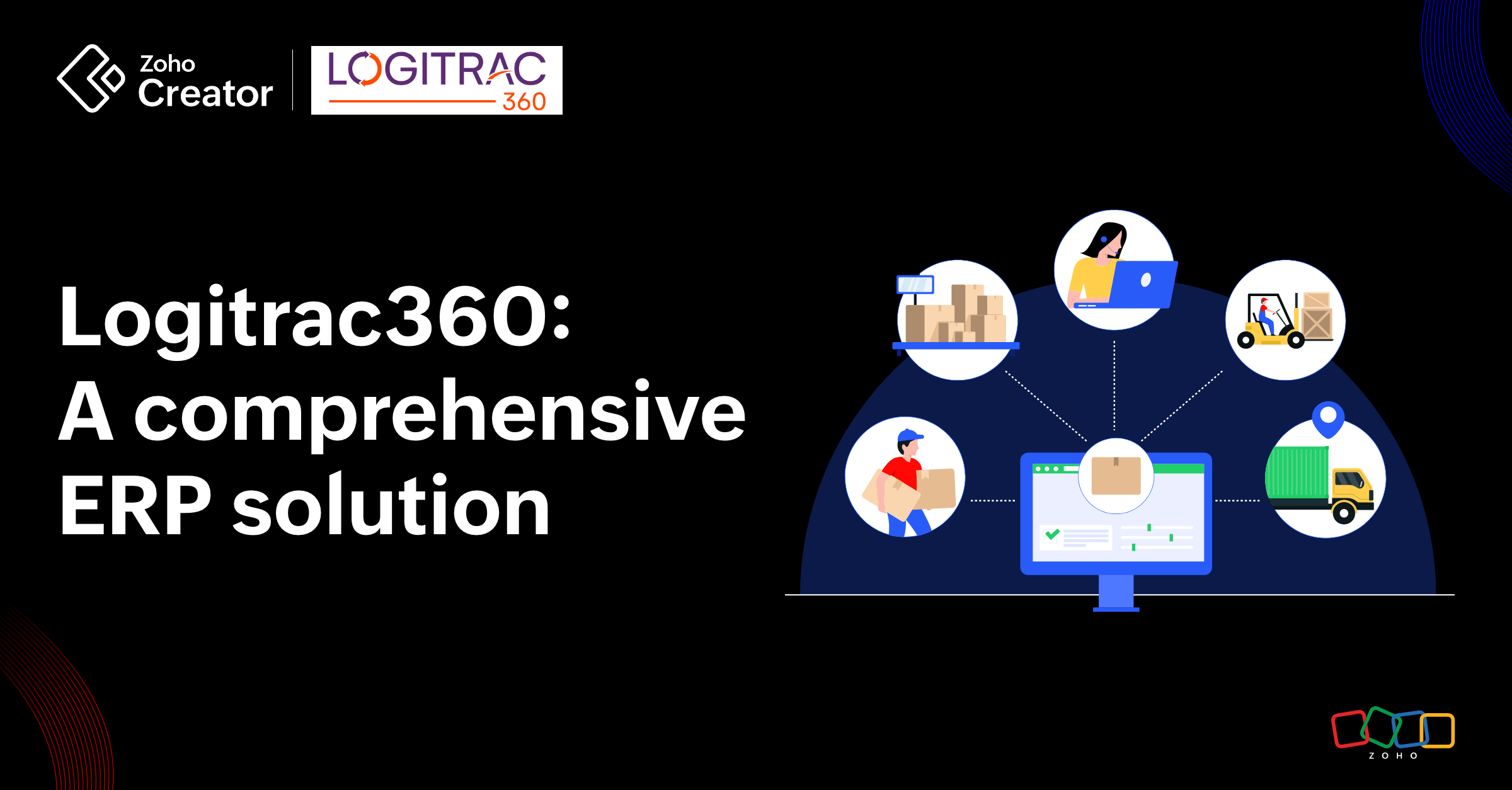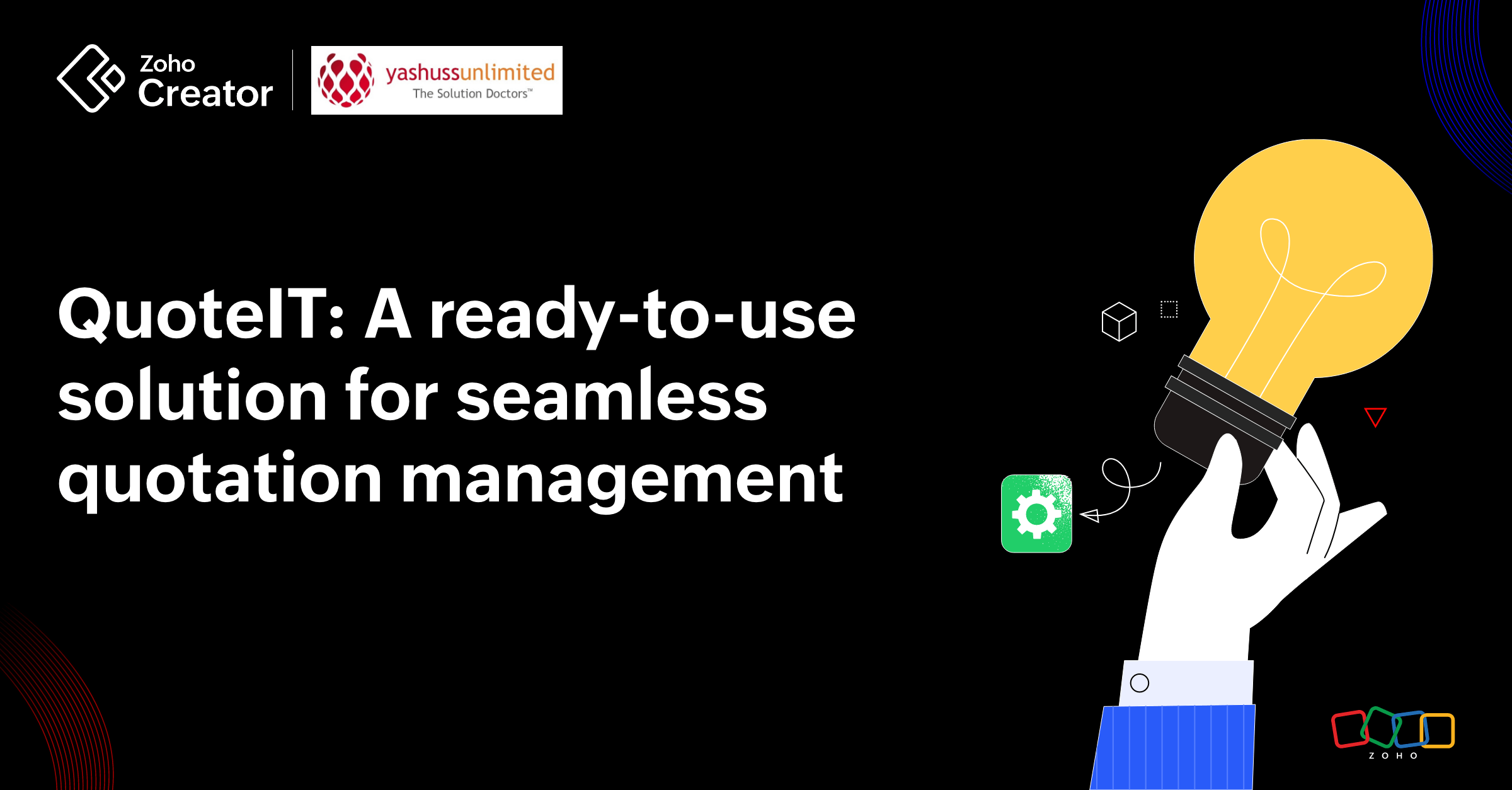- HOME
- Create Your Way
- Bringing low-code intelligence to your business databases
Bringing low-code intelligence to your business databases
- Last Updated : April 20, 2023
- 675 Views
- 5 Min Read
The rise of low-code databases
Low-code development had already been a major player in the software development industry, but with the pandemic and subsequent lockdowns, businesses were hard-pressed to develop more customer-focused software. By catering to these urgent requirements, low-code has swiftly gained even more traction.
As companies tried to trim workload and get their business online, it became evident that the majority of product ideas and functionality requirements could be sorted by ready-to-run but customizable apps built with minimum hand-coding. With low-code development platforms (LCDPs) that cater to citizen developers, low-code development became the new cost-effective quick-win for overworked IT departments.
However, low-code development is not just for front-line products. LCDPs are making their way to all corners of the IT stack, including databases. With workflows getting increasingly automated, more companies are looking to adopt low-code databases. And for data-driven businesses forever in the midst of digital transformation, LCDPs provide the tools that act on data in real time.
What are low-code databases?
The objective of a data-driven business is to improve process efficiency and boost productivity by making their data central, accessible, and easily shareable. Only, they soon find themselves stalling on software that carries a steep learning curve. Lacking the requisite know-how to employ powerful but complex database solutions like MySQL, companies end up settling for familiar tools like spreadsheets. While useful for small tasks, spreadsheets are not built for handling large quantities of metadata.
Low-code databases are database tools designed with a user interface that's so simple, even people without a programming background can use them successfully. These databases can be built, migrated, and managed with the help of intuitive drag-and-drop features. You can design and build anything, from a custom business database to a full-fledged analytics system, on it.
With low-code, your data no longer needs to be siloed in spreadsheets. With the capability to create an entire database front-end, and abstract and automate development, the speed of delivery of applications increases drastically. The bar to becoming a data-driven organization is lowered.
Low-code database as SaaS application
SMBs usually don’t have the extensive enterprise-level resources to invest in their IT infrastructure, so they don't focus on this as a primary business goal. They prefer to concentrate on their business rather than spend valuable resources on endless software development and maintenance.
Low-code SaaS applications, like easy-to-use and affordable online databases, solve this problem. The low-code SaaS approach relieves IT resources from the burden of regular maintenance and updates for changing requirements. It also speeds up the pace of solution implementation and reconfiguration significantly. Companies can perform data sharing, storage, and business analytics operations without extensive software development and infrastructure maintenance.
Real-world use cases for low-code databases
Both programmers and citizen developers can create basic database applications for their business users:
Log analytics - Log data can be stored, processed, and presented in an efficient manner
Product data management - Ecommerce websites can create databases for inventory management
Record keeping - Create database tables to keep track of corporate accounting records and operations, without relying on developers
Customer interaction - Gather client data, interactions, and processes using data-rich forms in one centralized place
Prototyping - Low-code databases can be used for building prototypes and testing workflows
Can businesses rely entirely on low-code databases?
While low-code databases offer a clear value proposition, the typical low-code platform can come with some notable trade-offs:
Pro-code customization: The modular components in low-code platforms may limit application customization. It's easy to drag and drop building blocks that fit your specific needs, but you may need a unique feature that's not available. This will often require custom code.
Limited integrations and APIs: Going with a low-code approach to databases may create integration issues down the road with legacy systems. A lack of proper APIs can also complicate future plans.
Vendor lock-in: Some LCDPs may lock you into their cloud-based offering. This can make it more challenging, but not impossible, to hire software engineers to further customize your application to suit your business needs better.
The lowdown on choosing your low-code platform
Is it possible to build your business database in a matter of hours? The answer is: with a low-code platform, yes! LCDPs allow you to build applications of varying complexity to meet the business needs of database management and workflow automation. You can also upgrade your existing applications with the latest advancements in application architecture. Banking on the faster development process and flowchart-based coding, you can focus on the user experience of your applications, all while increasing your returns.
Not all low-code platforms are created equal, though. Some low-code platforms are packed with features, but because of inflexible architecture, prevent companies from customizing the platform to meet their business needs or develop the necessary integrations that don’t come baked in.
There are several vendors in the market offering database capabilities. But many apps are just thin front-ends wrapped around a database, and it’s difficult to draw the line between a low-code database and any generic application. The high-end benefits of low-code databases can only be delivered if you partner with the right vendor—one who can provide low-code solutions specifically tailored to fit your system, with added services like easy API integration, mobile features, customer portals, and more.
The market for low-code platforms is diverse and growing because they expedite the transformation of companies into fully digital businesses. When evaluating new low-code platforms, ask the following questions before making a purchase decision:
Can the low-code database support your workload?
Is the platform's architecture flexible enough to upgrade and scale with changing business needs?
Does the platform have a strong support community?
Can it support the integrations you need?
Are users of the platform able to build their own apps?
Does it support multi-platform development?
Do the platform's users recommend it?
From risky spreadsheets to reliable low-code applications
If the answer to any of those questions is “no,” it’s best to move on. Companies should invest in low-code platforms that offer great functionality out-of-the-box but can integrate within established tech stacks and be customized. This alleviates the need for development hacks.
Thankfully, Zoho Creator's online database platform can answer "yes," to all of those questions above.

Zoho Creator lets you build databases online in three different ways :
Customize a prebuilt database template - Pick and customize from a gallery of over a hundred online database templates. Redefine the structure, forms, and relationships between the data to suit your needs.
Import an existing spreadsheet - Convert your XLS, CSV, or TSV files. Import them into our app, choose your lookups, and refine them as needed. Learn more here.
Migrate your MS Access database - We'll migrate your MS Access database for free. Learn more here.
"The value that Zoho Creator adds to our business is priceless. We just cannot quantify it. There are no data discrepancies or errors anymore. And our customer satisfaction is worth more than money. The database, the integrations, the support—everything is beyond excellent. Zoho really changed our lives." - Hervé Haurie, Managing Partner, deSiam.
Learn how deSiam, a retail manufacturer specializing in Thai ingredients and meals, leveraged Zoho Creator to build an online database, and integrate it with other Zoho products, like Books, Inventory, and Commerce, to manage their end-to-end operations. Read the deSiam online database casestudy.
Choose wisely! Migrate your web app or database to Zoho Creator now!
 Rashmi Sasi
Rashmi SasiProduct marketer at Zoho Creator, where she researches and creates content about all things low-code. Writer by day, reader by night, into eclectic books and long sentences, sci-fi enthusiast, and novice painter. Dislikes character limits.




Comments(1)
Thank you, Rashmi, for the helpful article! 👏 Indeed, a big advantage of the low-code software solutions is that they can be used to create a highly effective data storage management system. One of the most important aspects of managing any organization is ensuring that sensitive data is secure and encrypted.🔒🖥️ And a low code secure firewall that can ensure that your business’s sensitive organizational data is safely encrypted: https://www.crust.tech/how-can-we-control-where-our-data-is-stored/ Another advantage is that with the use of low-code platforms, any business can now create user-friendly software and websites without spending huge amounts of money, which has enabled them to compete more effectively with larger corporations. 🚀